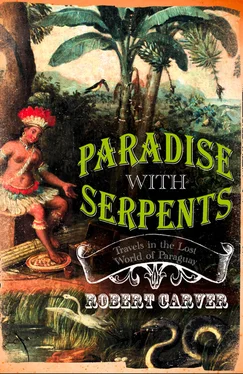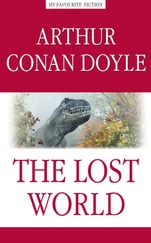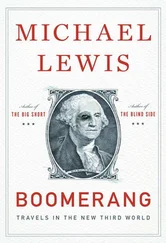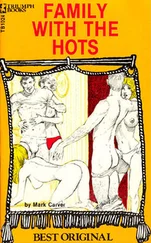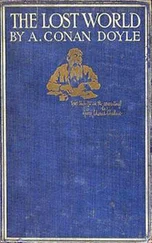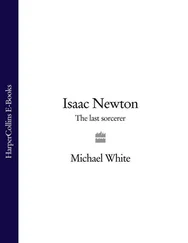1 ...7 8 9 11 12 13 ...20 After barely suppressed looks of complete disbelief someone would always ask, But why do people tolerate such restrictions – why do they not make a revolution? ‘Because they – we are used to such government restrictions. The State is incredibly powerful in Europe, and it takes on more powers every year. The few that object sell up and leave quietly – they are welcome to go. For the rest they accept, they complain, they grumble – but they accept.’ At this there would be shakings of heads and sighings of disapproval. ‘Never in Paraguay – never in South America!’ they always concluded. Indeed, the contrast between Europe and Paraguay could not be sharper. Paraguay was still in essence an 18th-century state, with a very small and almost completely powerless government. Life was dangerous, often violent, and there were many assaults and robberies, but there were very few constraints upon the individual’s freedoms, including the freedom to starve, be unemployed, and live with no social security or health service. You could buy land, put up any sort of house, fly in and out of the country in your own plane, own firearms, pay no income taxes – and precious few other ones either. Private property was sacrosanct. To enter another’s land without asking was to risk being shot as dead as a potential malviviente . Bureaucratic interference in people’s lives was minimal. The state bureaucrats only turned up at the office once a month to collect their salaries. You could park, piss, smoke and drive where and how you wanted to.
The individual egotism and selfishness of the country could be gauged by its completely anarchic and manic driving on the roads. No one stopped for pedestrians or for any other reason either. If the police wanted to halt traffic they had to erect a barrier that would seriously damage vehicles if they drove into it. There were no safety nets to protect the old, the young or the infirm. The street children of Asunción had formed a Union, and they demonstrated frequently – on the streets, of course – for ‘dignity and respect’, and protested against a recent law which had sought to ban children under 14 from working. This edict caused great resentment, and thousands of children had protested that they were being denied the chance to support themselves. Like everything else, age in Third World countries and the West carried an entirely different freight of meanings. In Paraguay, as in Spain, the age of consent for sexual activity for girls was 12. In Paraguay, young ladies ‘came out’ on their fifteenth birthday – there were photographs in the local papers of these belles dressed up in white gowns and squired by their fathers at full dress Society balls. Life expectancy, so long we in the West are almost like Swift’s Struldbruggs, and so short in the Third World, created quite different demands on people. In the West sexual activity among young people is discouraged for as long as possible, and seen by progressive middle-class adults as a bad thing, while in Paraguay it was encouraged and hastened in a land where a large family was one’s only chance of survival in old age, and early, unexpected death was a frequent reality. To be a mother at 12 or 13, so shocking as to be seen as a social problem in the industrial West, was a simple reality of life in countries like Paraguay. In the moral panic that surrounds children’s sexuality for many adults in England it is often forgotten that once England was itself a Third World country, where people bred early and died young. Shakespeare’s Romeo was 14, one recalls, and Juliet 12 when their love affair took place. The Elizabethan audience had not been shocked. This had represented late-medieval reality.
Gabriella was the first Paraguayan I had met who had lived for an extended period in Europe, and who knew both cultures intimately. She had worked for the BBC World Service in London and her husband had worked in import-export. They had managed to save enough money to buy a small flat in a remote suburb of outer London. This, she told me, they rented out to a fellow South American. Like so many people from unstable economies with erratic currencies all over the world, a small stake in British real estate was a hedge against uncertainty at home. I asked Gabriella how she managed in Paraguay now that most of the local banks had collapsed. ‘I only use my bank account in London,’ she replied. ‘I have never had an account here. I wouldn’t trust any South American bank. When I want cash I put my UK plastic in the hole in the wall here, and draw out US dollars in cash.’ This, I learnt, was quite common for middle-class South Americans in Uruguay, Paraguay, Argentina and Brazil. You had your bank account in Miami, in Dallas, in London, New York or the Cayman Islands; all your money you kept out of the local economy, because neither the currency nor the banks could be trusted. Those who had ignored this simple rule of financial security in Argentina and had trusted the government’s one-peso-equals-one-dollar policy had lost their money when the government defaulted, devaluing the peso and freezing bank accounts.
The government had, in effect, stolen the people’s money by reneging on their promise of parity. For the last two centuries South America had been a sink for capital. You could make money fast, but if you trusted the local banks or the local currencies you lost the lot, eventually. The ideal export product was cheap to make in South America and very expensive to sell for dollars or pounds abroad – hence the huge popularity of cocaine and marijuana as cash crops, and the fortunes made by processing and exporting these drugs in Paraguay and elsewhere. The whole country was dotted with illicit, hidden airstrips in remote places, where light aircraft – avionettas – landed and refuelled, carrying out drugs, contraband liquor and cigarettes, and carrying in guns, dollars and essential spare parts. These strips were constantly being discovered by the police, though very rarely were any planes intercepted. With extended fuel tanks fitted the standard light plane could reach Miami or Dallas – or private airstrips in the desert in Texas or Arizona – without having to land to refuel. The rich – and the criminal – all had private planes.
Since the arrival of the Spanish, and even before, South America had been a place of plunder. The great empires of the Aztecs and the Incas had been based, too, on military conquest and the exploitation of subject peoples; both of these tyrannies had practised extensive human sacrifice, the victims taken from subject and defeated peoples. This continent had long been a place where people imposed their will and seized what there was – gold, silver, slaves, sugar, cocaine; the products changed, but the economy of looting continued. It was normal and natural for South Americans to go into exile when things went wrong. The concept of life was still colonial, with strident nationalism in local politics, mirrored by a furtive, clandestine export of capital away from local risks – instability, revolution and chaos. When the time came to flee the exiles already had their money, their houses, their other lives in safe havens prepared abroad in safer places. Gabriella and her husband lived in Paraguay – but only just. Their capital, their property was in London. They rented in Asunción because it was not secure to own. Everything in Paraguay was very cheap to buy by US or European standards, and everything was up for sale. In the past, people had put their money into real estate because they didn’t trust the local banks. Now they wanted to sell and go away again. Stroessner had been bad, but this pseudo-democracy where everyone was corrupt and everyone stole and no one was accountable was worse. You could buy houses, apartments in Asunción for half, for a third even of what people were asking, Gabriella told me. All the flights out to Miami and Dallas were booked up for months in advance, and the planes arrived all but empty. Gabriella and Hugo had shipped down some furniture from Miami when they came back. That could be sold quickly or shipped out again if things went wrong – Hugo had ‘Italian papers’ so they could always go to Italy, she told me. People in Paraguay talked of having ‘papers’, not of being a particular nationality. It was where you were allowed to live that counted. ‘Life is easy in Paraguay, it is cheap and there are servants, but it could all go wrong very soon,’ Gabriella told me. They had only been back a matter of months, and they were already thinking they might have to leave again. Almost unknown to the prosperous, secure peoples of the developed West, millions of the educated, the skilled, the able in the Third World live like this. In Sudan, in Albania, in Sierra Leone, Malaysia and Indonesia people watch nervously for the signs that some imminent collapse might be just round the corner. In Paraguay, the first casualty of any coup d’état would be the liberal media; there would be no place for a BBC reporter under a military dictator.
Читать дальше
